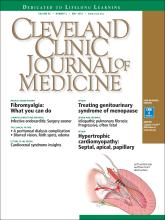Article Figures & Data
Tables
Vulvovaginal dryness, itching, burning, irritation Vaginal discharge Decreased lubrication or arousal with sexual activity Pain with introital insertion during sexual activity (dyspareunia) Decreased or delayed orgasm Postcoital bleeding Dysuria Urinary frequency or urgency Recurrent urinary tract infections Thinning of pubic hair Thinning or fusion of labia Vulvovaginal pallor or erythema, petechiae Hymen remnants Introital retraction, stricture Loss of vaginal rugae Prominence of urethral meatus, caruncle Conditions Associated symptoms Medical problems Sexually transmitted infections Vaginal discharge, odor, irritation Candidiasis Bacterial vaginosis Trichomoniasis Lichen sclerosis Hypopigmented, waxy, agglutination, loss of labial folds Lichen planus Red plaques, pain Lichen simplex chonicus Lichenified skin Vulvar intraepithelial neoplasm Raised or eroded lesions Vulvar cancer Ulcer with raised edges Paget disease Red, scaly plaque with sharp border Vulvodynia Dyspareunia Vaginismus Dyspareunia Psoriasis, eczema Multiple plaque-like lesions, nongenital lesions Inflammatory bowel disease Fissures Skin irritants Perfumes Powders Contact dermatitis, skin irritation, reactions Deodorants Soaps Spermicides Lubricants Hot tub and pool additives Foreign bodies Panty liners Perineal pads Tight-fitting or synthetic clothing Retained foreign body Adapted from references 17 and 18.
Product Proprietary name Dosing Vaginal creams 17-beta estradiol Estrace vaginal cream 0.1 mg/g Initial: 2–4 g/day for 1–2 weeks
Maintenance: 1 g at 1–3 times a weekaConjugated estrogens Premarin vaginal creamb (0.625 mg/g) Vulvovaginal atrophy: 0.5–2 g/d for 21 days, then off 7 days or twice a weeka
Dyspareunia: 0.5 g/day for 21 days, then off 7 days or twice a weekaVaginal ring 17-beta estradiol Estring (7.5 μg/day) Inserted for 90-day intervals without interruption Estradiol acetate Femring (5 and 10 μg/day) Vaginal tablet inserts Estradiol hemihydrate Vagifem, Yuvafemc (10 μg/day) Initial: 1 tablet/day for 2 weeks
Maintenance: 1 tablet twice a weekDHEA (prasterone) Intrarosa (6.5 mg insert) 1 insert into vagina, once daily Oral tablet Ospemifene Osphena (60 mg) 1 tablet orally every day ↵a Common clinical dosage is 0.5 g twice a week for maintenance.
↵b Premarin vaginal cream is the only locally applied preparation with FDA approval for dyspareunia due to GSM.
↵c Yuvafem is an FDA-approved generic equivalent to Vagifem.
DHEA = dehydroepiandrosterone; FDA = US Food and Drug Administration






